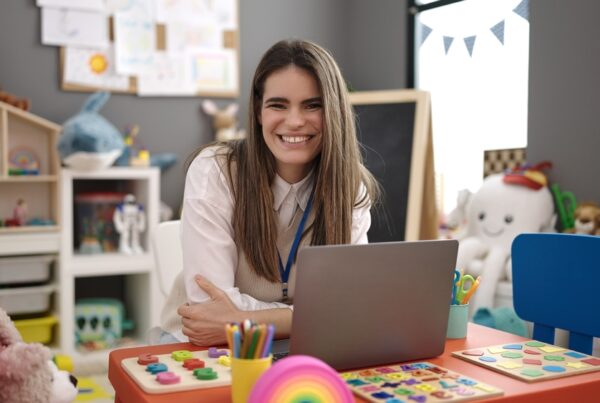World Down Syndrome Day (21 March), is a global awareness day that has been officially observed by the United Nations since 2012. Selected to signify the uniqueness of the triplication (trisomy) of the 21st chromosome which causes Down syndrome, on this day we have a chance to raise awareness and make a change. A better chance than any other day…

The early years of life are extremely important for the development of every child. It is during these years that children achieve the basic skills that lay the foundation for future progress.
Children with Down syndrome typically face delays in certain areas of development, so early intervention is beneficial in helping them reach their developmental milestones. No two children with Down syndrome are the same. – each child will have different strengths and areas where they will need a bit more help. A child with Down syndrome will learn and master new skills but may just need more time and support to do so. Early intervention can begin any time after birth, but the earlier it starts, the better.
For children with Down syndrome, providing the right support and interventions during the early years can help build a strong and healthy future and ensure that the child can reach their full potential. The right therapies will help with communication, language development, sensory issues social skills, independence and mobility.
Support may include physiotherapy, occupational therapy, speech and language therapies and information and support for the family.
Early childhood intervention services are designed to enhance the way infants and toddlers develop. However, most learning will occur at home between visits to professionals, not during the sessions so the main goal of early childhood intervention services is to help parents understand and meet the developmental needs of the child, and to put into place strategies to assist their development.
When families and therapists work together as a team, the best outcomes can be achieved. While the therapists may be experts in child development, they do not know each child as well as the parents do, and they don’t know initially what strategies will work best for that child and the family. The best approach, leading to the best outcomes for your child, is for professionals and parents to pool their knowledge and expertise and work together.
Children with Down syndrome are all different and while there may be some developmental and health issues that are more common for a child with Down syndrome, it is important to look at every child as an individual and respond to their individual needs as they arise.
Perhaps the most important factor in the development of children with Down syndrome is the attitude of the people around them.
It is important to set high goals and believe that they can reach them, celebrate every success (even the little ones) and to provide a lot of encouragement along the way. Connecting with other families can also be helpful in sharing strategies, ideas and different approaches.

Communication, speech, language and development
Children with Down syndrome often experience delays in the development of their speech, with most using their first word around the age of two to three. Generally, this may mean they have fewer words and may speak in shorter phrases than their peers.
They may also have problems in using their communication skills to meet all their needs. For instance, children with Down syndrome may find it more difficult than their peers to use language to initiate conversations with friends, to indicate toilet needs, or to gain attention, and may use non-verbal means of meeting these needs.
Evidence suggests that the use of key-word signing can play an important role in supporting language development. Key word signing is the use of signs and natural gestures to support communication and language development of children and/or adults with communication delays or difficulties. It helps language development by using signs and words together to promote understanding and using visual strategies to convey messages. Parents can take courses in key word signing or may be supported by their speech therapist to learn some of the basic signs.
In addition to speech delays, some children with Down syndrome may experience some difficulties with articulation or pronunciation. There are physical factors which can contribute to this. The nasal passages and sinuses are smaller, and the roof of the mouth is small and high which reduces the size of the mouth cavity. Speech therapists can assist children with improving articulation.
The tendency to have smaller nasal cavities can also lead to more frequent ear infections and fluid accumulating in the inner ear, a condition commonly referred to as glue ear. These conditions can lead to hearing loss which can contribute to speech delays. Usually, these ear conditions can be treated through the insertion of grommets or hearing aids.
If you notice that a child is having difficulty hearing or has had repeated ear infections, a hearing test is advisable. If left untreated, hearing issues can lead to problems with language development and learning.
Speech therapy is an important part of early intervention. Speech therapy is a way to provide strategies and support to help children to develop their language and speech skills. Speech therapists or speech pathologists help to develop early communication and understanding.
There are many pre-speech and pre-language skills that must be acquired before a child says their first words so working with a speech therapist can be beneficial even before a child starts to talk. These include:
- the ability to imitate and echo sounds
- turn-taking skills – learned through games such as ‘peek-a-boo’
- visual skills − looking at the person speaking and visually following objects
- auditory skills − listening to music and speech for lengthening periods of time, or listening to speech sounds
- tactile skills − learning about touch, exploring objects in the mouth
- oral motor skills − using the tongue, moving lips
- cognitive skills − understanding more about his environment and ability to make things happen.
A speech therapist can help with these and other skills, including breastfeeding and eating solid foods, which can help strengthen your child’s jaw and facial muscles to help their future communication skills.

Social skill development
Linked to communication and language development is the development of social skills and behaviour. As with all children, children with Down syndrome can be well behaved in some situations, but other situations may be more difficult. Sometimes difficulty with communication can lead children to act out in order to try to communicate their needs.
Children with Down syndrome may be delayed in social development compared to their peers, so it is important to adjust any expectations accordingly. Some of the social behaviours parents strive to develop include cooperation, manners, sharing, joining in activities, listening, making friends and respecting others.
Behaviour can vary between situations, according to the expectations involved. Children with Down syndrome, like all children, benefit from a consistent approach, which includes positive reinforcement of behaviour for the right age and stage of their development.
Some strategies that can help to support a child develop their social skills are:
- Emphasising and praising positive behaviours rather than giving attention to misbehaviour.
- Practice taking turns at home.
- Break instructions down and give one at a time.
- Role play social situations with the child.
- Encourage the child to look at people when they are communicating, or when someone is communicating with them.
- Learn key word signs and teach others involved with your child key word signing so they can communicate.
- Search for helpful apps that model appropriate social behaviour, e.g. Model me going places.
Children learn the most at home from family members, so displaying and reinforcing positive social behaviours within the home environment house is the best approach.
Remember, being a parent of a toddler can be hard work and tiring. If a child’s behaviour is troubling you, there is help and support out there. Contact your local Down syndrome association or the parent helpline for further advice and strategies.









